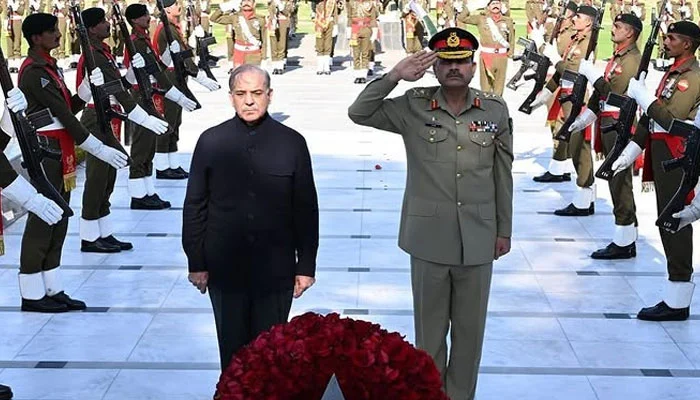In Pakistan’s constantly shifting civil-military landscape, stability often hinges on the rapport established between the prime minister and the army chief.
Under the leadership of Chief of Army Staff (COAS) General Asim Munir, the military establishment has found a partner in Prime Minister Shehbaz Sharif, a leader it not only trusts but actively supports.
Described by a senior source as “the best,” PM Shehbaz has earned the military’s confidence through a combination of effective governance, sheer diligence, administrative orderliness, cautious diplomacy, and a profound understanding of Pakistan’s power dynamics.
Behind closed doors, the sentiment is clear: the military views Shehbaz as the “best possible choice” for Pakistan’s chief executive during a period marked by political fragmentation and economic uncertainty.
This trust is reciprocal. Shehbaz has consistently — both publicly and privately — expressed admiration for the army chief’s professionalism, discipline, and national vision. On multiple occasions, the prime minister has credited the military’s “unwavering support” to the government in addressing the challenges facing the nation.
While the prime minister has publicly lauded the army chief numerous times, a well-placed source indicates that General Munir, too, speaks highly of Shehbaz within military circles.
This rare mutual appreciation is seen as a stabilizing influence in a system often plagued by mistrust between key centers of power.
Speculation has arisen in some quarters suggesting that PM Shehbaz’s performance might have fallen short of the establishment’s expectations. However, well-informed sources categorically dismiss such claims.
Shehbaz, widely recognized as a “doer,” has long been favored by the establishment. Even General (retd) Pervez Musharraf (the late) — who had overthrown Nawaz Sharif’s government in a military coup — reportedly admired Shehbaz for his administrative capabilities.
He was also considered the primary choice of the military establishment allegedly behind the ouster of Nawaz’s previous government.
Shehbaz was subsequently imprisoned, primarily for his refusal to abandon his elder brother. Eventually, the establishment shifted its support to Imran Khan, and the subsequent events are well-documented.



